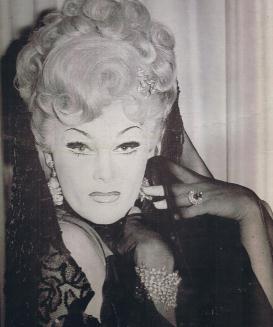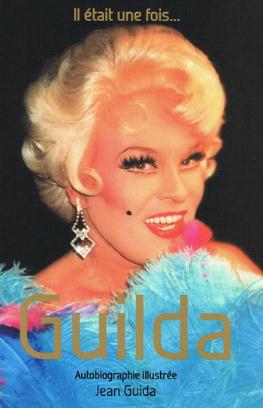
Guilda once headlined at Montreal's notorious Casa Loma in the red-light district.
There is a chapter in Guilda: Il était une fois, the 2009 autobiography of Jean Guida – aka legendary Montreal drag queen Guilda – about the time he and two Jewish friends were rounded up by the Gestapo in Nice, France, during the Second World War and sent packing on a “death train” to the Buchenwald concentration camp.
“For the first time since the beginning of the war, I was genuinely afraid,” Guida wrote. “At the time we did not know what we know today. We did not even know that death camps existed. We knew nothing.”
But Guida knew enough to be wary of the Nazis and escaped from the train by climbing down through his wagon’s manure-filled toilet reservoir to the tracks below when the train pulled into a station. Guida escaped when the train chugged away, but wrote, “My two comrades never had this chance – years later I learnt they had died at Buchenwald, like their parents.”
Guida was born in France on June 21, 1924, and, in his first autobiography, 1979’s Elle et moi, wrote that his father was French and his mother was a Sicilian countess whose family name was de Mortellaro. But Montreal journalist Alan Hustak – who interviewed Guida in 2004 – reports the Mortellaro name is nowhere to be found in the Libro d’Oro della Nobiltà Italiana, the official registry of Italian aristocracy.
Whether Guida’s Italian aristocratic roots are fact or fiction, by the time he died on June 27, Guida – his stage name was taken from the 1946 movie Gilda, which starred Rita Hayworth – was Canada’s oldest female impersonator and indisputably a star in Montreal’s nightlife scene for more than 50 years.
Guida got his showbiz start as a makeup artist with the Ballets de Monte Carlo when he was just 17, later scoring a small role as a transvestite in director Yvan Noé’s 1946 film Une Femme coupée en morceaux, which was filmed at Studios de la Victorine (today called Studios Riviera) in Nice. But Guida – who moonlighted as a female impersonator – would really hone his chops working for legendary cabaret artist Mistinguett, who herself used to work at the Moulin Rouge.
Guida was brought to New York by renowned impresario Lou Walters (father of Barbra Walters), who booked “Guilda” in his clubs in New York City and Miami. When his American work visa expired, Guida moved to Montreal, where his act was an instant smash at Chez Paree in 1954. He sold out Montreal’s Salle Wilfred-Pelletier at Place des Arts in 1965, then during Expo 67 opened his own cabaret, Chez Guilda, in the old El Morroco nightclub across the street from the Montreal Forum.
Guilda would also headline Montreal’s notorious Casa Loma in the red-light district, as well as the posh Caf Conc in the Chateau Champlain Hotel and, for 33 years, until 2000, performed regularly at Montreal’s Théâtre des Variétés (today La Tulipe live rock venue on Rue Papineau).
Guilda sang live and often staged elaborate productions, with grand costumes and as many as 40 performers, including dancers and a live band. Guilda did uncanny impersonations of Marlene Dietrich, Edith Piaf, Mistinguett, Barbra Streisand, Marilyn Monroe and Rita Hayworth. Guilda also met many other stars while headlining cabaret halls and nightclubs the world over, including Piaf, Maurice Chevalier and Josephine Baker.
But in Montreal, Guilda broke down social barriers and taboos as her gay and straight audiences mixed, as far back as the 1950s. When news of Guilda’s death broke in Montreal, people of all ages reminisced about seeing Guilda perform.
“At first it was the women who wanted to see me,” Guida once said. “And at the time it wasn’t the gays who grabbed my ass, but the upstanding, heterosexual family men.”
A public funeral for Guida was held July 6 at Outremont’s Saint-Viateur Church, where veteran Montreal gossip columnist Michel Girouard told reporters, “For me, Guilda was not a transvestite, but a real artist. He forged ahead because he was a determined person, and had he stayed in Las Vegas, he would have become a huge star.”
The bisexual Guida claimed to have been married three times and said he had fathered four children.
La Presse newspaper reports Guida is survived by his daughter Gaye, grandchildren Pierre and Leia, his great grandchildren Christina and Sara, as well as his sisters Hélène, Mireille, Christiane and Simone, and his sisters-in-law Josiane and Pauline. The cause of death has not been released. Guida was 88.


 Why you can trust Xtra
Why you can trust Xtra


